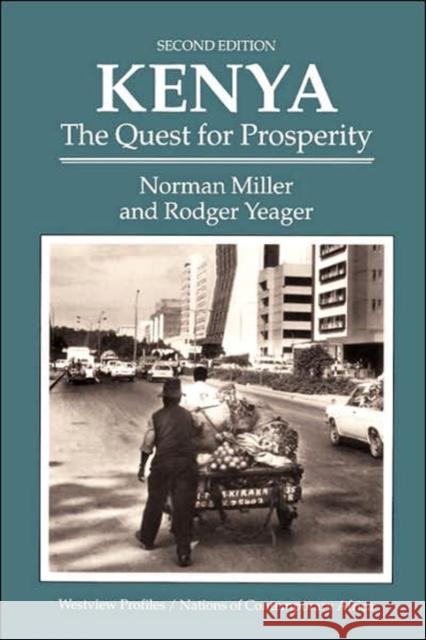Kenya : The Quest For Prosperity, Second Edition » książka
Kenya : The Quest For Prosperity, Second Edition
ISBN-13: 9780813382029 / Angielski / Miękka / 1993 / 271 str.
Kenya : The Quest For Prosperity, Second Edition
ISBN-13: 9780813382029 / Angielski / Miękka / 1993 / 271 str.
(netto: 186,53 VAT: 5%)
Najniższa cena z 30 dni: 186,33
ok. 22 dni roboczych.
Darmowa dostawa!
Kenya is one of Africa's most important and controversial nations. It has simultaneously been heralded for its political stability and economic success and criticized as a wellspring of elitism and class exploitation. Kenya remains a close ally of the West and a symbol of capitalism in Africa, and it occupies a position of strategic importance to the Middle East and the Indian Ocean. Yet all of these distinctions are now coming under question in the fourth decade of independence.Kenya's exquisite natural beauty and renowned wildlife refuges hide a more mundane reality. The country is vast, rural, poor, and without oil or other mineral wealth. It is dependent on smallholder agriculture and export earnings from international tourism, tea, and coffee. Although the population is only 28 million, less than 20 percent of Kenya's land area is readily available for dense human settlement. Population growth has slowed, but demographic pressures still pose very serious socioeconomic, ecological, and environmental challenges.In this second edition of a critically acclaimed profile, Miller and Yeager address these and other social issues while tracing political and economic developments from early precolonial times to the contemporary period and the recent fourth-term reelection of President Daniel arap Moi. The book captures the aggressive, self-confident spirit that characterizes Kenya and provides unique insights into how this nation of contemporary Africa is faring in its continuing quest for prosperity.











